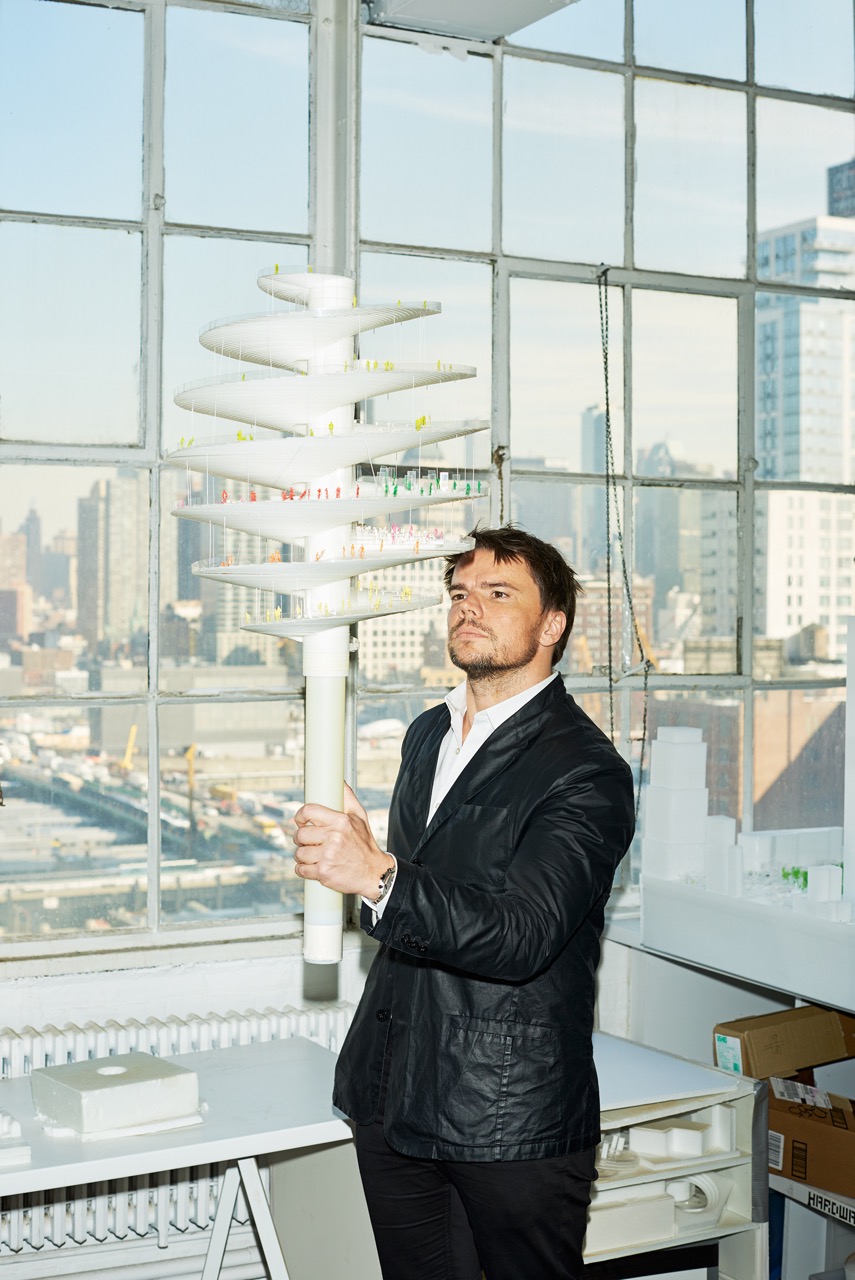What is your ideal office?
We’ve never had the luxury of building anything for ourselves, but what we like is freedom. We’ve been involved in designing the headquarters for a giant technology company on the West Coast, so we’ve been having a lot of discussions about what should be the nature and characteristics of the workplace of the future. [This project has since been revealed as Google’s new complex in Mountain View, CA] In this case, the company has experienced massive growth, repeatedly, since their foundation, and is diversifying quite radically, so you can’t predict the nature of their work and how they do it, even when the building is done. So we’ve dissolved the vertical striation of the building, and essentially the building’s a series of big platforms that are each the size of a team, that then dock simply by one resting upon the next, so you can walk through the entire building without ever going from one floor to the next. It’s almost like Super Mario Bros. as a workplace. I travel a lot, and I think cities are amazing, but always a little bit over-coded. You eat in a restaurant, you walk on a sidewalk—everything is quite well defined. What’s amazing in nature is that everything is a little bit less prescribed, more open for improvisation, or even play. That’s also kind of the work environment we’ve tried to deliver in California.
What is an experience that altered your perception of reality?
One really important thing was when I read Generation X, by Douglas Cooper, back in ’96. It describes this typical North American urban setting, with highways, and McDonald’s jobs, coffee cups with company logos, all the stuff that you would normally disregard as just being noise, so everydayesque that you don’t even see it. So when you think about art, or culture, or architecture, you think about, you know, Fallingwater, a luxurious villa with a waterfall in the middle of the forest in Pennsylvania, but what Douglas Cooper opened my eyes up to was the potential for poetry in the practical. That’s also how we approach architecture, rather than fantasizing about one day doing a castle on a mountaintop in Bavaria or whatever, to realize that doing an office building in California is actually the potential to build the framework around the life you would want to live.
What culture are you particularly fond of?
Well, in general I love Japan. Everything that they do, if it’s brewing a cup of tea, or slicing a piece of fish, or carving a piece of wood, it’s done with great care. They have this whole art form of carpentry, joinery, where you don’t use nails, everything is wedged together. Almost all aspects of their life are ritualized into something meaningful.
What is an unexpected building that inspires you?
There’s this abandoned hotel in a favela north of Rio called Tavares Bastos that BOPE, the swat team, turned into their headquarters, so now there’s like six hundred soldiers in bulletproof vests drinking coffee there. So all the drug traffickers abandoned the favela, which means now you can actually hang out there. It’s one of the most three-dimensional communities I ever stayed in. There’s actually a crazy British guy that made a little inn you can stay in called The Maze. It’s an incredibly organically self-grown environment. So his house has grown bit by bit, and even jumped over one of the streets, and grown onto the top of another house. He’s almost like this favela Gaudí.
What is an object that has made a remarkable impression on you?
I don’t fetishize much, actually. My most recent acquisition though, I got the rowing machine from House of Cards. The most amazing thing about it is that the resistance is water, you propel a blade through a big bowl of water. Going to the gym extracts all of the enjoyment out of human movement and makes it into work, instead of being play. But actually this rowing machine makes it much more meditative, it somehow retains some of the organic pleasure of rowing in a little piece of carpentry. You can also sit and row while planning your evil takeover.
